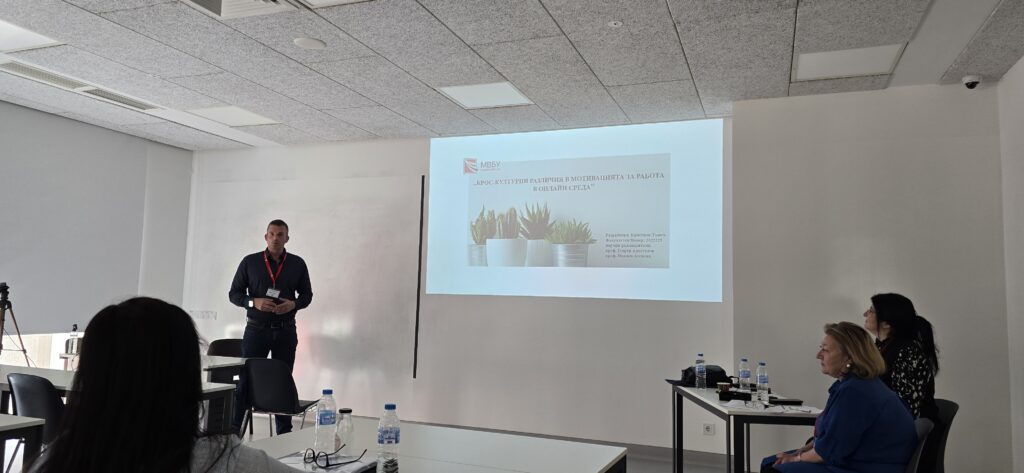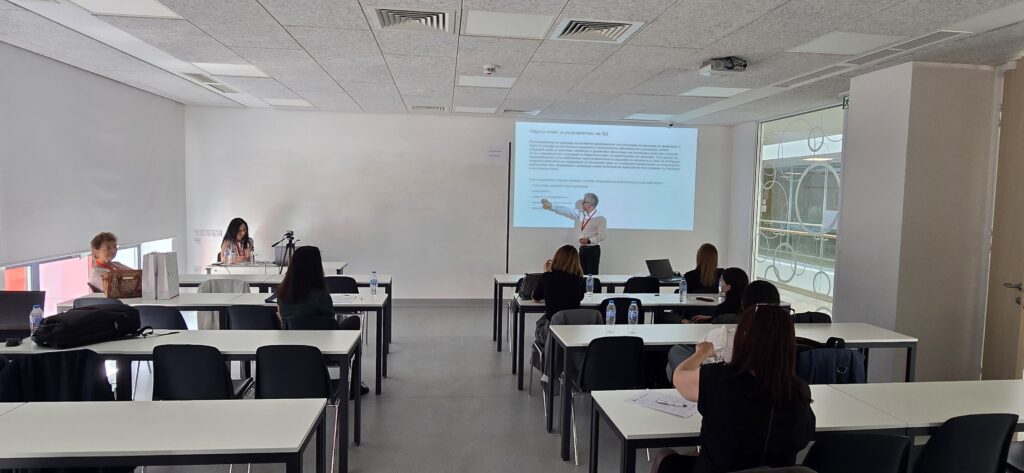IBS’ XIX International Scientific Conference outlines opportunities for economic growth and business prospects in times of crisis
The XIX International Scientific Conference on “Economic Growth, Business Perspectives, Market Positioning in Times of Crisis,” held on April 12-13 at the International Business School, brought together prominent scholars and business representatives from both the country and abroad in search of perspectives, opportunities, and solutions to problems essential for the development of scientific research, education, and the welfare of citizens and society.
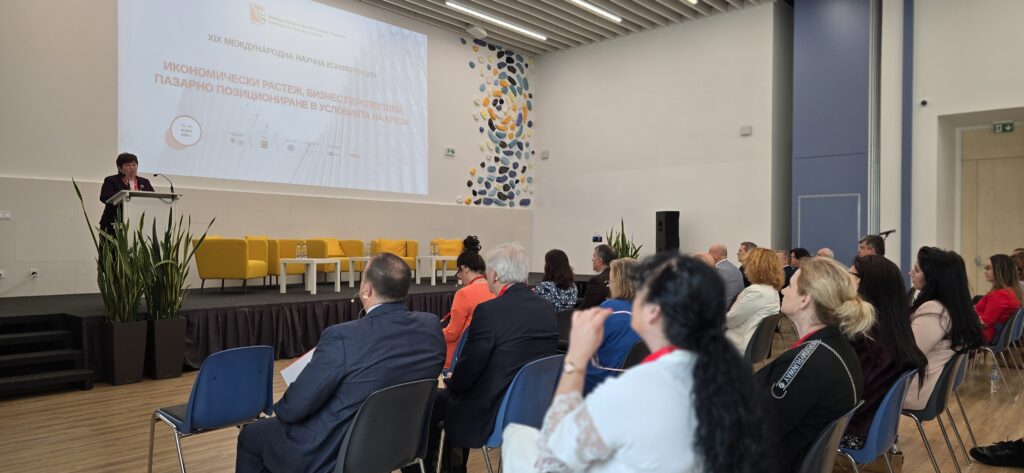
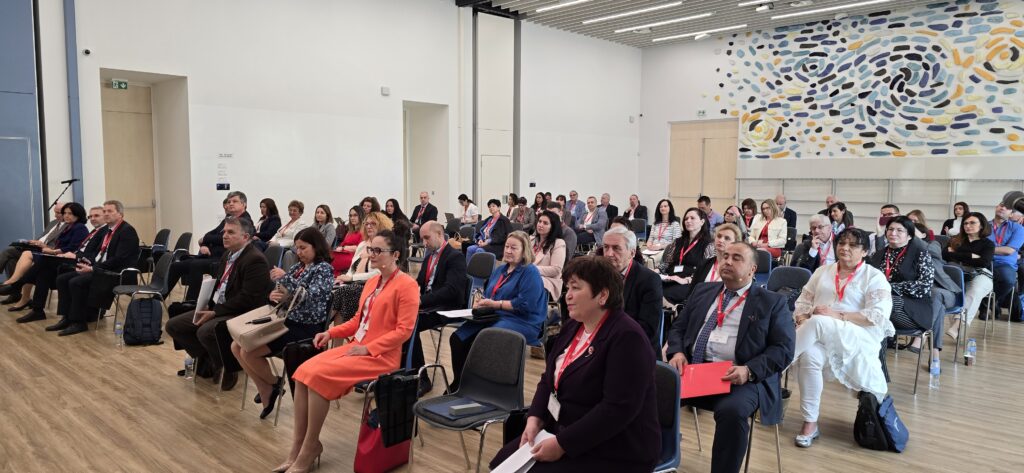
The forum was opened by Assoc. Prof. Dr. Stela Baltova, Vice-Rector for Research and International Affairs at IBS. She emphasized that “policies alone are not sufficient to promote growth ideas, and that communication and knowledge are essential.” Assoc. Prof. Baltova added that the goal of the conference is to provide opportunities for scholars from various fields to present their latest research and development results and discuss market positioning in times of crisis, economic recovery, and achieving economic growth in the context of prospects for both the business sector and the public sector.

Ms. Lena Gaydarska, President of the International Business School, welcomed the participants and stated that the conferences at IBS have important goals and missions, contributing to solving current issues in the context of national and global processes. “This conference stands out from those held so far because we are in a complex economic, social, and geopolitical situation, which is a major challenge for scholars and young researchers tasked with analyzing the situation and providing development perspectives,” she noted. In this regard, Ms. Gaydarska wished success to all participants and expressed her conviction that the discussions would yield useful ideas, recommendations, and actionable solutions for economic growth in the context of the complex situation.
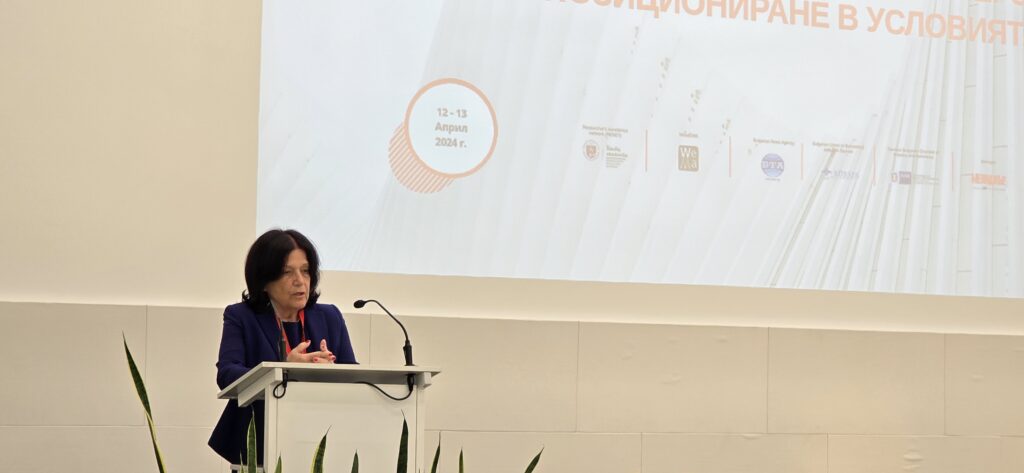
Prof. Dr. Georgi Apostolov, Rector of the International Business School, delivered a powerful message. According to his words, the crisis can also be an opportunity: “The crisis we are facing today is the result of unexpected, successive major global, regional, and national crises over the past few years – COVID, military conflicts, frequent changes of governments, technological innovations,” noted Professor Apostolov. Therefore, according to him, “instead of considering the crisis only as an unfavorable circumstance, it is good to accept it as a stimulus for creativity, initiative, and innovation in everything we do. The time of crisis provides us with opportunities to unlock and mobilize our own resources for development, to rethink our relationships, priorities, and approaches, to develop new strategies, and to seek new paths for adaptation and prosperity in complex and changing conditions,” said Professor Apostolov.
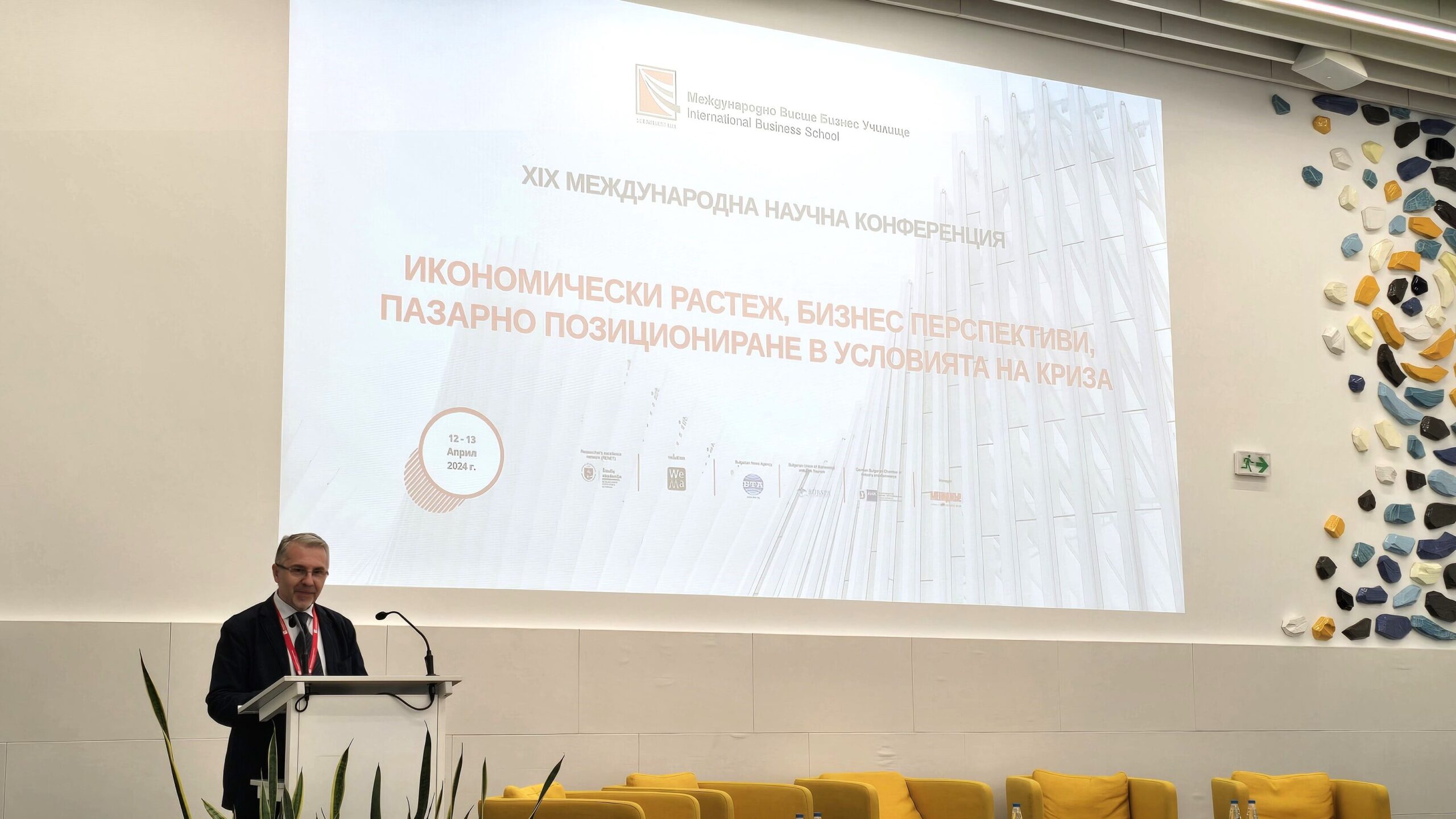
Mr. Bogomil Nikolov, Deputy Chairperson of the Economic and Social Council of Bulgaria (ESC), presented the activities of the council, which includes representatives of employers, trade unions, and organizations from various sectors. Mr. Nikolov highlighted the priorities of the institution’s work, including the Green Deal and the sustainable development of the country, the technological transformation of the economy through digitization, and ensuring European standards for social rights. He also outlined the topics of opinions, analyses, and resolutions in these areas developed and adopted by the ESC.
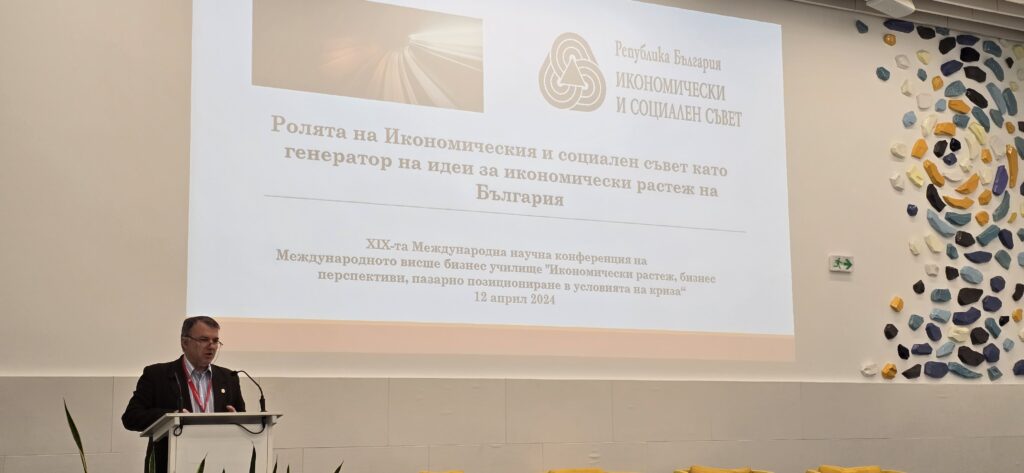
In times of constant change and technological progress, research, innovation, education, and the development of business models that are not only innovative but also strategically oriented towards growth are critically important for the successful functioning of the economy. This was the focus of the panel discussion held during the conference, moderated by Prof. Dr. Tsvetan Iliev, a lecturer at the International Business School. Participating in the panel were Mr. Stanislav Popdonchev, member of the board and Deputy Chairperson of the Bulgarian Industrial Association and its Chief Financial Officer, Ms. Lora Yosifova from the Ministry of Innovation and Growth, Prof. Virginia Zhelyazkova, a professor at the Bulgarian Academy of Sciences and a DSc in circular economy and sustainable finance, and Prof. Dr. Veselin Minchev, a long-time lecturer at the International Business School. They shared their expertise, perspectives, and measures taken to address issues related to negative demographic trends and an aging workforce in Bulgaria, the lack of highly skilled personnel, the development of sustainable business models, ESG regulations, circular economy, the need for intelligent transformation and green digital transition, scientific research, innovation strategies, education, global resource movement, and migration.
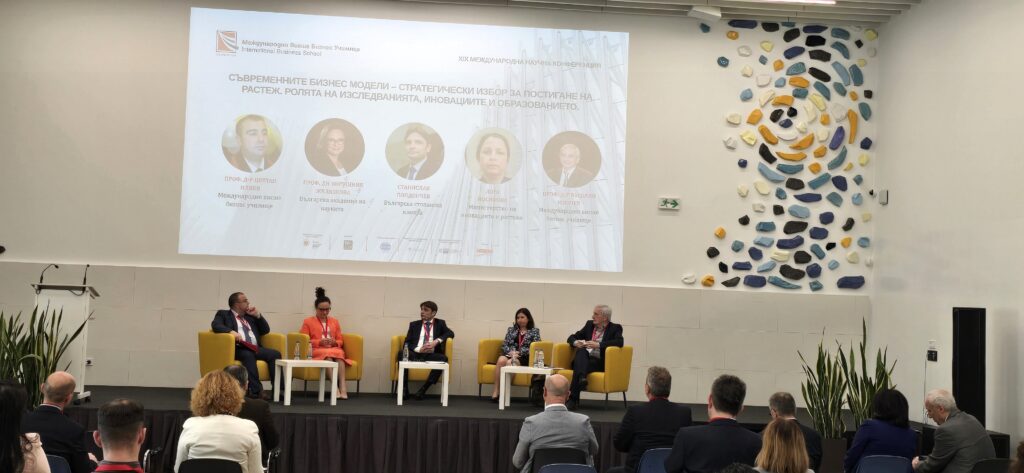
Official greetings to the participants of the scientific forum were delivered by Prof. Dr. Milen Baltov, Rector of Burgas Free University, Dr. Mitko Vasilev, Member of the Board of Directors of the Bulgarian Union of Balneology and SPA Tourism and former long-serving Chief Executive Officer of the German-Bulgarian Chamber of Industry and Commerse (AHK Bulgarien). Assoc. Prof. Dr. Daniela Georgieva, from the Economic Research Institute at the Bulgarian Academy of Sciences and a member of the Board of Directors of WOODEMA – the International Association of Economics, Management, Marketing, Quality, and Human Resources in Forestry and Forest Industry, read a congratulatory address on behalf of Prof. Denis Jelasic, Secretary-General of WOODEMA and Professor at the University of Zagreb in Croatia. Among the official guests at the event was Ms. Smilena Kostova, Secretary-General of the Economic and Social Council of Bulgaria, as well as Prof. Neno Pavlov, PhD, Emeritus Professor at the International Business School.
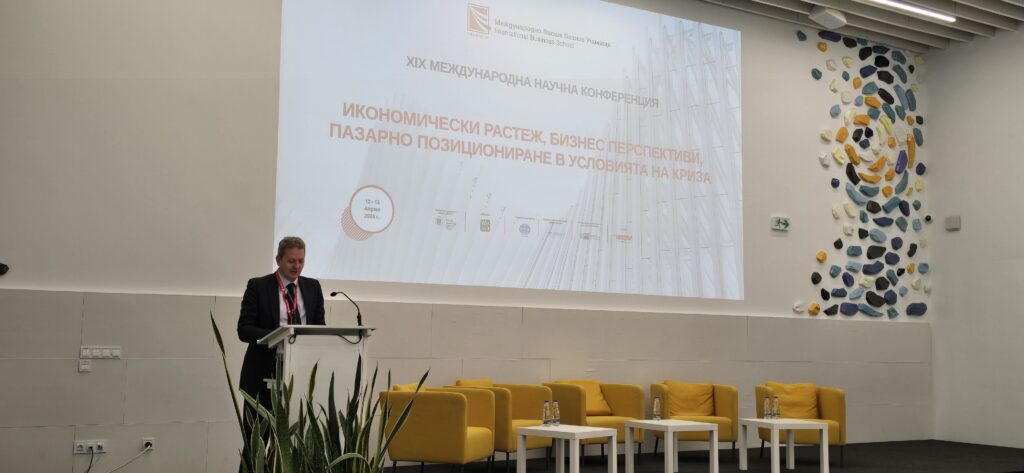
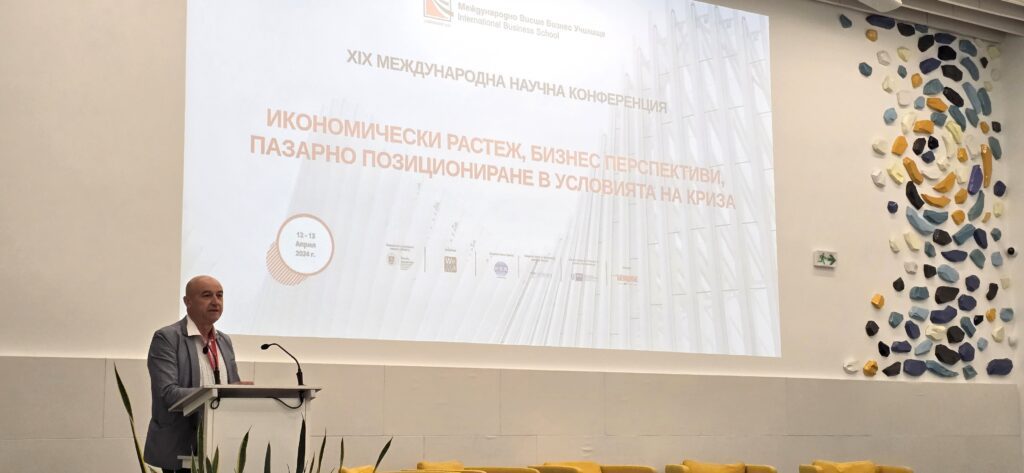
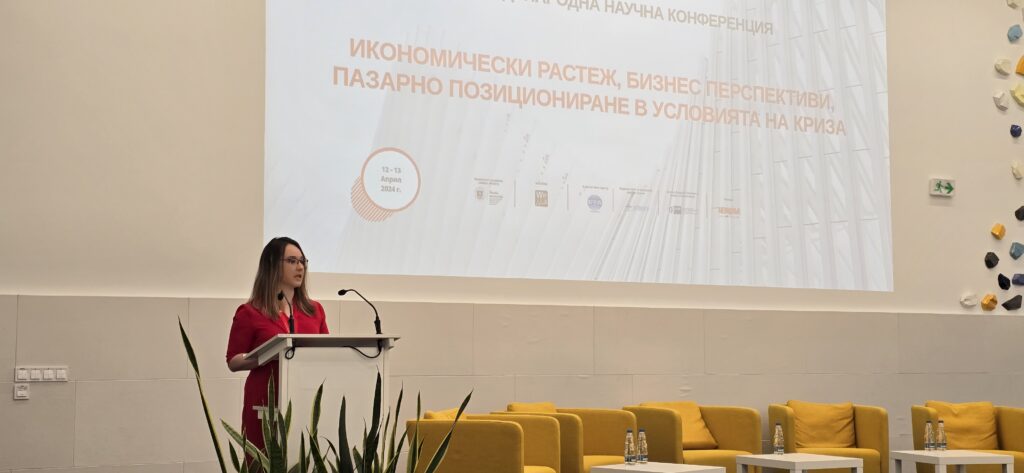
The scientific forum continued with presentations on conducted scientific research and achieved results in 5 thematic areas, which included:
- economic growth and economic efficiency, which are at the core of society’s economic development;
- business perspectives in times of crisis;
- the place of artificial intelligence and the role of digital transformation in forecasting, managing, and overcoming crises;
- organizational development and human resource management.
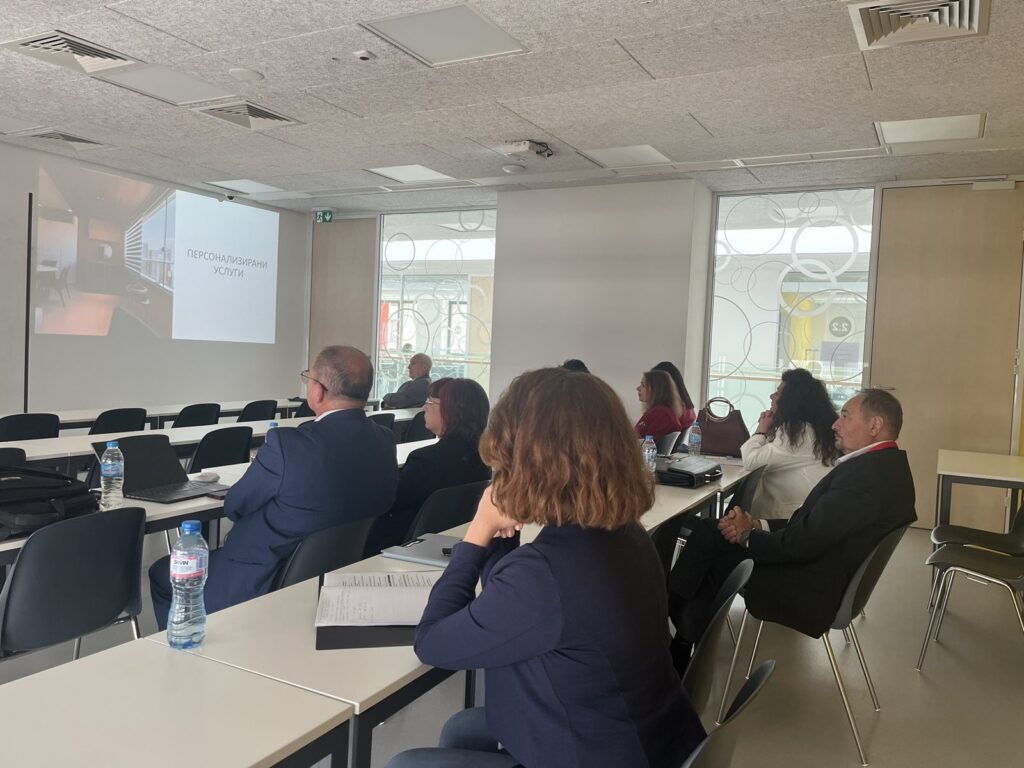
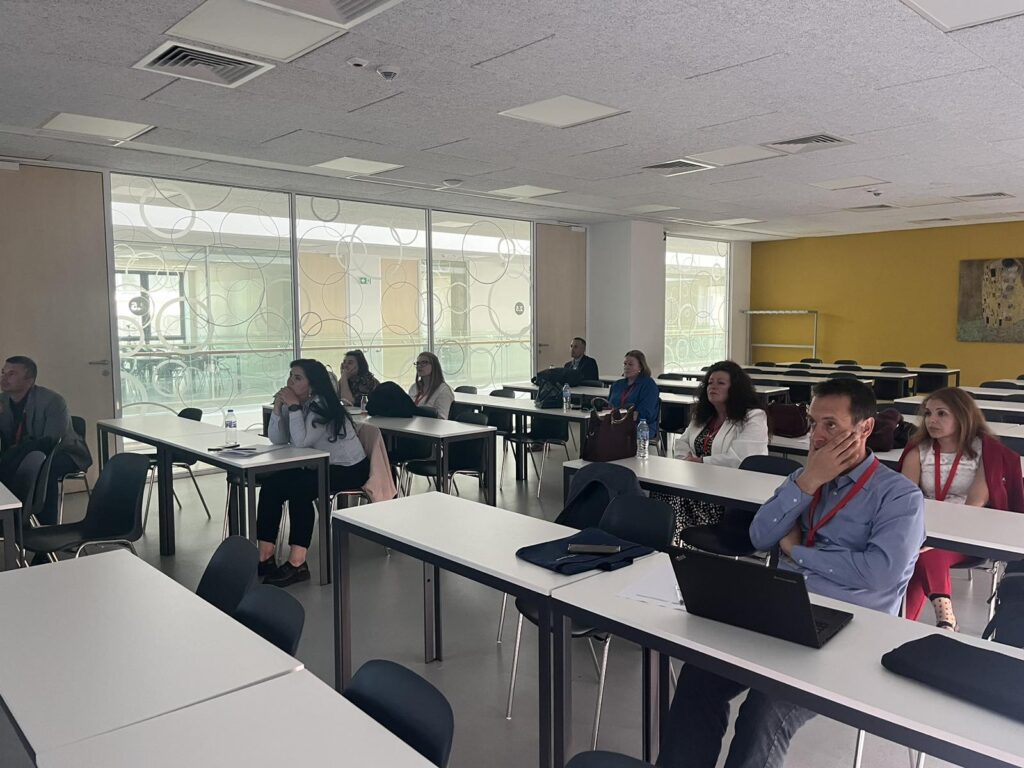
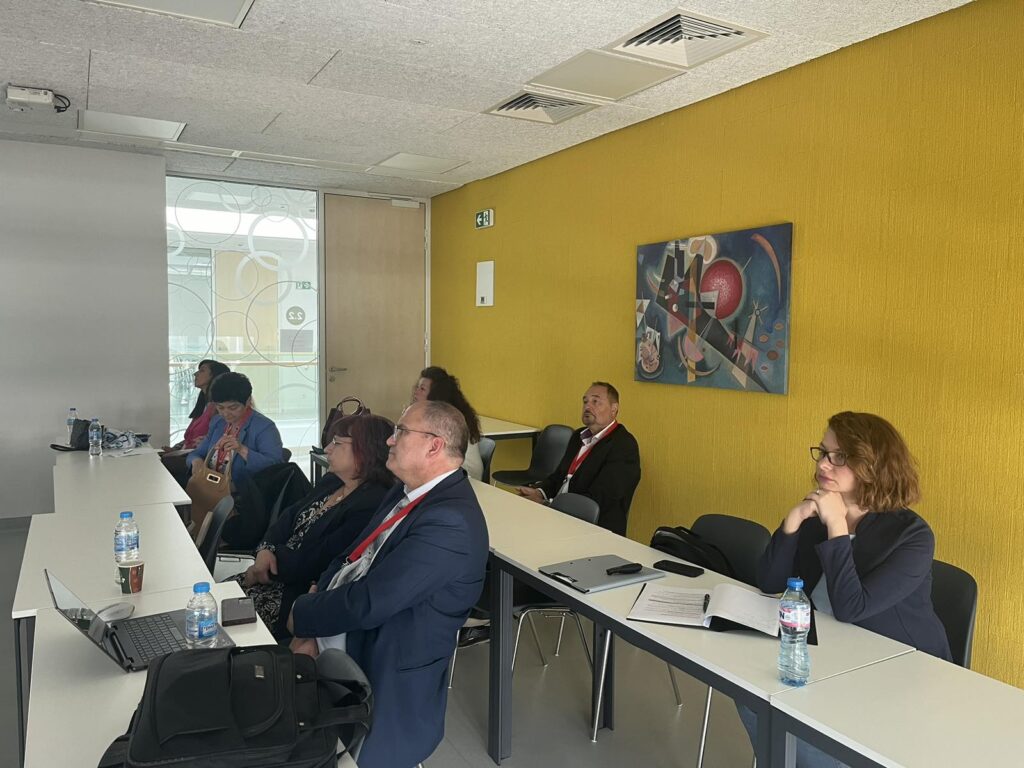
The conference also provided a special platform for doctoral students and young researchers to share their research results and exchange ideas in key areas such as economic growth, crisis resilience, leadership, and achieving corporate identity and competitiveness in modern organizations.
